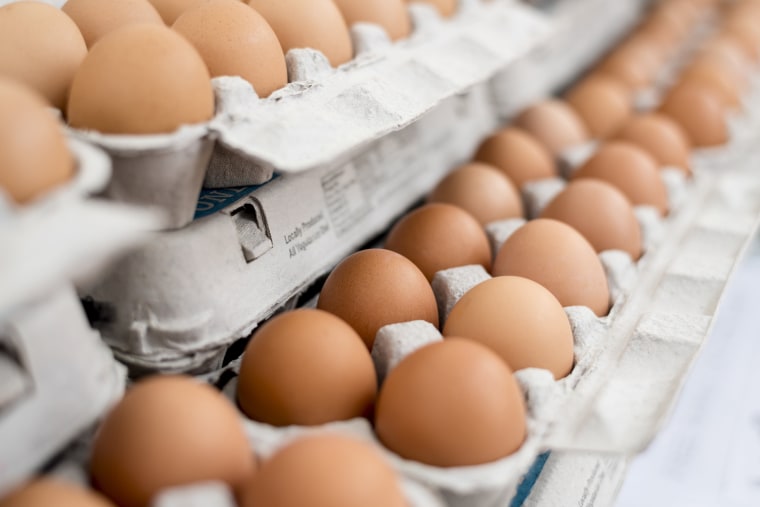Few foods have been as misunderstood as eggs. It wasn’t that long ago that health experts warned people about the potential dangers of eggs because the cholesterol and saturated fat in the yolks were both thought to boost your risk for heart disease. But nutrition is a relatively new science and later research didn’t support these concerns. Let's say there's been a lot to unscramble. Here’s what you need to know about the healthfulness of eggs, what the labels mean and some easy and delicious ways to enjoy them.
What the science shows
A study that tracked more than 37,000 adult men and 80,000 adult women for a period of 14 years found that eating an egg a day was unlikely to have an impact on heart disease or stroke These findings were released back in 1999. Since then, subsequent studies have reached similar conclusions. A 2016 meta-analysis — the type of study that looks at findings from multiple studies to provide a better estimate of risk based on the pooled data — found that there was no clear link between egg consumption and the risk of heart disease, and that eating up to an egg a day may decrease the risk of stroke by about 12%.
A new study published in JAMA muddies things a little bit. In this study, the pooled results of six previous studies involving a total of almost 30,000 people suggested that higher dietary intake of cholesterol or eggs (which happen to be high in cholesterol) upped the risk of heart disease and death. This can certainly sound off some alarms, but when taken with together with the existing evidence from studies over the past 20 years, it’s probably not as dramatic as it sounds. For one, the study wasn’t designed to show cause and effect, meaning that there’s no way to know if egg consumption actually caused these findings. Also, it was based on food recall data — the kind where people have to remember what they previously ate. Can you remember everything you ate recently?
The latest edition of the US Dietary Guidelines removed cholesterol limits because according to their advisory report, "available evidence shows no appreciable relationship between consumption of dietary cholesterol and serum cholesterol,” and “cholesterol is not a nutrient of concern for overconsumption.” It’s possible that this new study has uncovered some individual variability in how people respond to cholesterol in their diet, but it’s impossible to draw any major conclusions.
How many eggs should you eat?
Most experts say it’s OK to eat an average of just under one egg per day. That means if you have a three egg omelet twice a week and a fried egg with avocado toast once per week, you’re within the range. But make sure that you’re eating eggs in an otherwise heart-healthy way — with a generous portion of veggies and plant-based fats (such as avocado) instead of sides, like bacon, sausage, white toast, and butter. And since heart disease is still the leading cause of death, make sure that you’re also getting your cholesterol monitored by your physician. This is sound advice whether or not you’re eating eggs.
Egg whites or whole eggs?
This question comes up because the yolk contains the cholesterol and saturated fat, however, it also happens to be where you’ll find most of the nutrients in eggs. Some of the nutrients, like vitamin D and choline, aren’t easy to come by in the diet, so eggs are a meaningful source. In fact, government data suggests that most adults are under-consuming choline, which is a nutrient involved in memory and mood regulation. Eggs are a top source of this essential compound. Egg yolks also contain the antioxidants lutein and zeaxanthin, which support healthy vision.
Interestingly, whole eggs may have an additional advantage over just the whites. In a small study among young men, researchers looked at the impact of consuming whole eggs or egg whites on their post-workout muscle-building response. Though the protein levels among both groups were equal, the whole eggs led to a 40 percent increase in that muscle-building response, indicating that whole egg eaters would experience better gains in muscle mass compared to those who skip the yolks. It’s thought that whole foods in their complete and natural form supply the right mix of nutrients that optimize their benefits — yet another reason to enjoy the yolk.
A large egg has about 70 calories, about 55 of which are supplied by the yolk. While an abundance of nutrients are contained within the yolk, the majority of protein — over 4 grams — is in the low-calorie whites. If you’re looking to get all of the nutrients in whole eggs but want a lighter egg-based meal, try combining the whites with some whole eggs. For instance, make an egg salad or scramble using a couple of whole eggs plus additional whites. This not only amplifies the size of your dish, but also pumps up the protein, both of which boost satisfaction.
Decoding egg labels
Now that you know about healthfulness of eggs, what about the bewildering labels on the cartons in the supermarket? Here’s a rundown of some of the most common terms you’ll see on egg cartons — including what they mean (and sometimes don't).
- Cage-free eggs are from chickens that are not confined to a cage. Cage-free chickens don’t typically have any outdoor access, and may be raised in a barn or another closed area.
- Free-range eggs. These chickens are given access to the outdoors, but that access might be small, and may be caged or screened. Though it may seem misleading, this term doesn’t always mean that chickens are free to roam about a farm. Some are and some aren't.
- Pasture-raised. A pasture-raised claim means that hens are allowed to roam about a relatively large outdoor space and forage for their own food (though they’re also supplemented with some commercial feed). In addition to a higher standard of care, eggs from pasture-raised chickens may be more nutritious than others. In one study that investigated the nutritional profile of both caged and pasture-raised eggs, researchers found that pasture-raised eggs had significantly more vitamin E and healthy omega-3 fats than their conventionally-raised counterparts. You may also notice these eggs have Instagram-worthy deep orange yolks.
- USDA Organic. If you see the USDA Organic label on your egg carton, it means that the eggs were produced by hens who only eat organic feed (which, by definition, is also non-GMO) and have never received hormones or antibiotics. The organic label also means that the eggs are free-range, though again, it’s not an indication that the hens who laid the eggs were exposed to much farm land.
- Omega-3 enriched: These eggs come from chickens whose diets have been enriched with flax seeds, which are a natural source of these healthy fats. While that bumps up the omegas considerably, it doesn’t tell you anything about how the hens were raised (in a cage-free or free-range environment, for instance).

Note that label terms, like farm fresh and natural, are unregulated and may be used because people often equate these terms with healthfulness. But on an egg carton, they’re basically meaningless.
Easy and delicious ways to enjoy eggs
Whether boiled, scrambled, poached or fried, eggs are a quick and easy protein option — delicious on their own and when part of a balanced meal. But eggs are also versatile and can be part of any number of recipe creations. They’re not just for breakfast, either. Quiches and frittatas are delicious lunch and dinner entrees, and they pair well with salads and simple roasted veggies. Here are five healthy recipes that feature this kitchen staple.
Simple Baked Eggs with Spinach and Salsa

Unlike eggs cooked on the stove, baked eggs don’t require hands-on time. This recipe-for-one can be scaled for any number of eaters (or number of eggs you’d like to enjoy at your meal), and the instructions offer easy tips for customizing baked eggs to your liking.
Smoked Salmon and Dill Sheet Pan Frittata
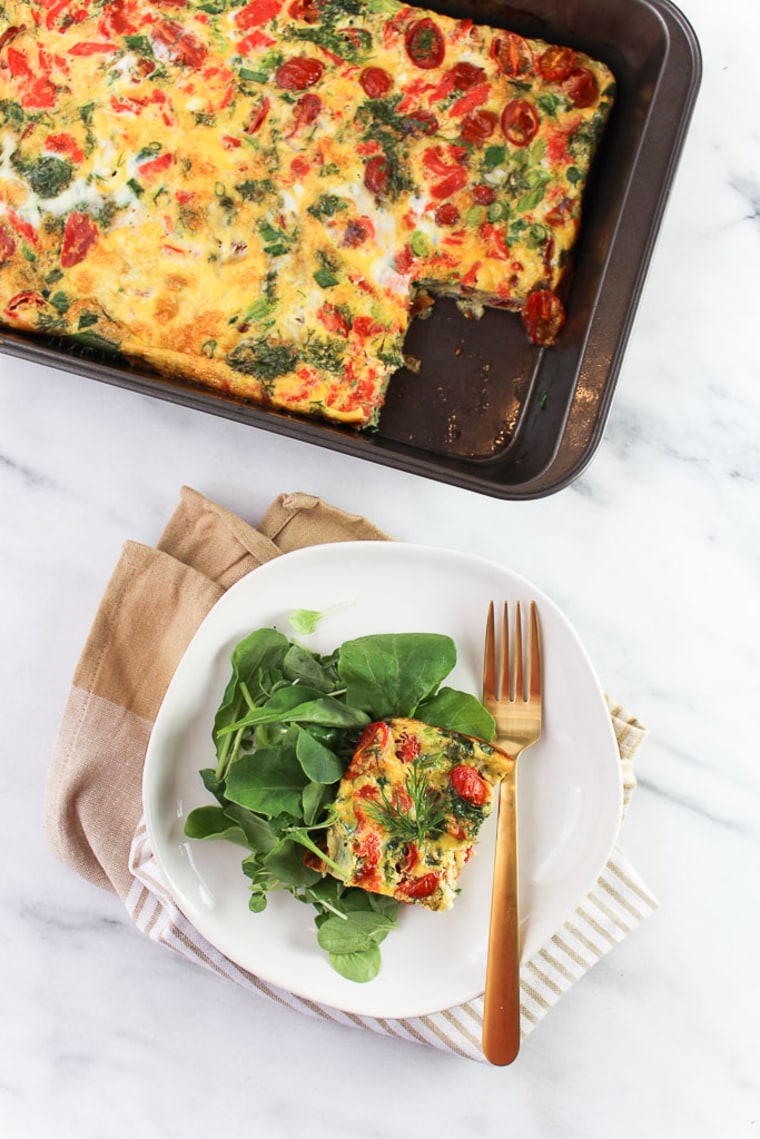
With just five ingredients, this is a low-fuss, dinner-in-30 or brunch-for-a-crowd type of meal. While it’s in the oven, toss some mixed greens with a drizzle of extra virgin olive oil and vinegar to serve on the side.
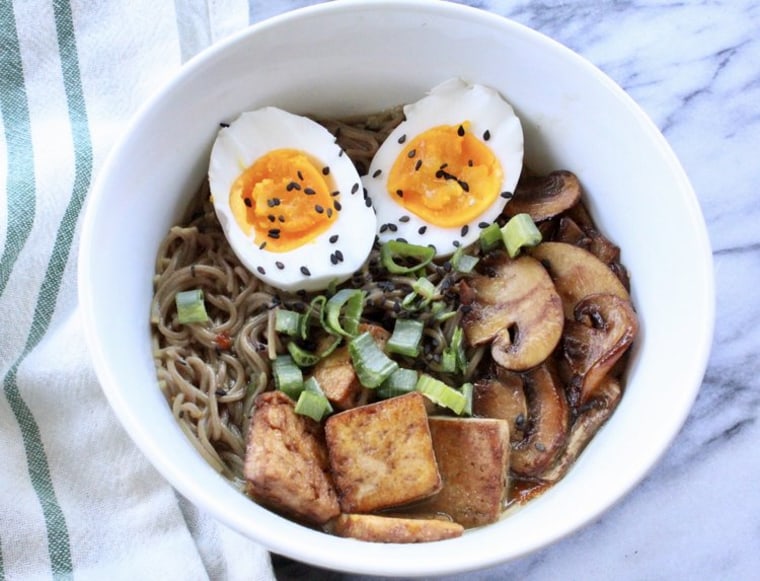
Whole grain brown rice ramen noodles form the base of this cozy bowl. Though this vegetarian version contains tofu, you could easily swap it out for chicken. A boiled egg brightens up the bowl and brings valuable nutrients to your meal.
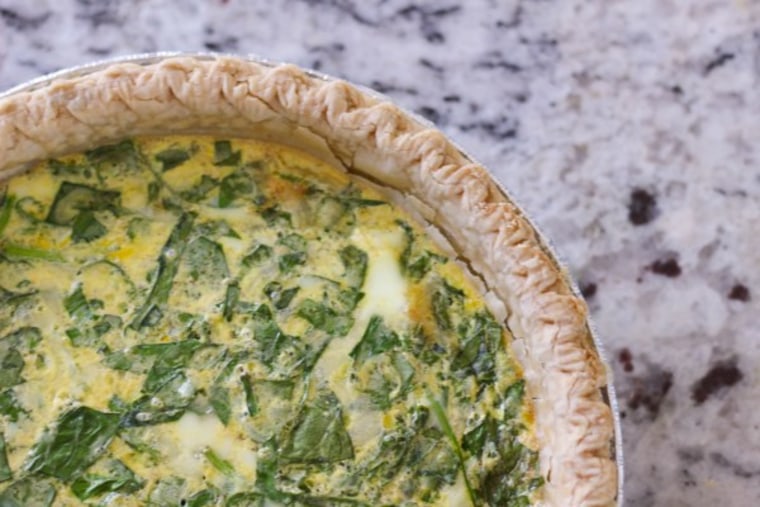
This classic dish gets a healthy makeover by using a store-bought, whole grain pie crust, boosting the spinach content, and lightening up on the cheese. Meal instructions don’t get easier than mix, pour, and bake, so this is one for hectic nights. While you have the spinach handy, sauté some to serve on the side.
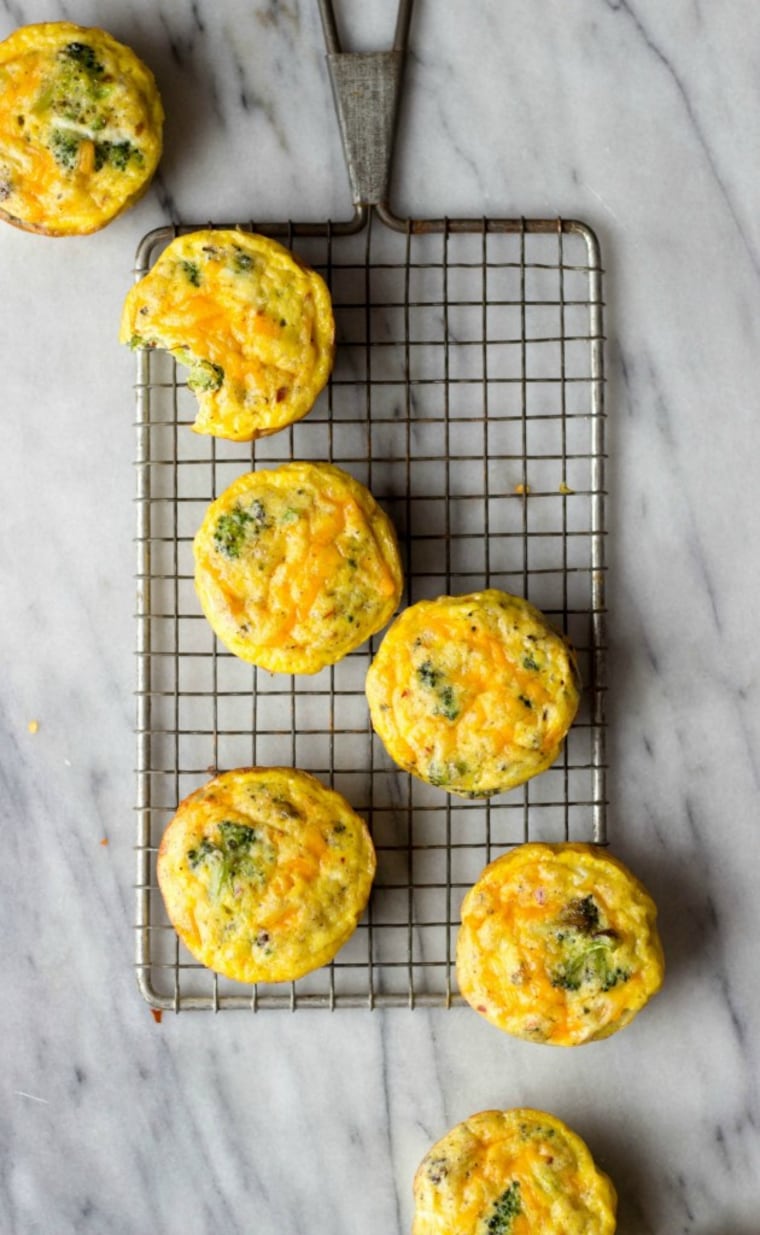
Making a batch of egg muffins is the equivalent of meal prepping your breakfast, which eliminates the last-minute morning scramble (pun intended) on crazy weekdays. This recipe calls for broccoli, but the beauty of egg muffins is that you can use whatever veggie you have on hand. Another savior: You can take them to-go when you’re running late.
MORE HEALTHY EATING ADVICE
- What four nutritionists eat in a day
- How to eat pizza, according to a dietitian
- Bad nutrition advice dietitians want you to forget
- The best way to lose weight boils down to these three things
- What you need to know about going vegan
Want more tips like these? NBC News BETTER is obsessed with finding easier, healthier and smarter ways to live. Sign up for our newsletter and follow us on Facebook, Twitter and Instagram.
